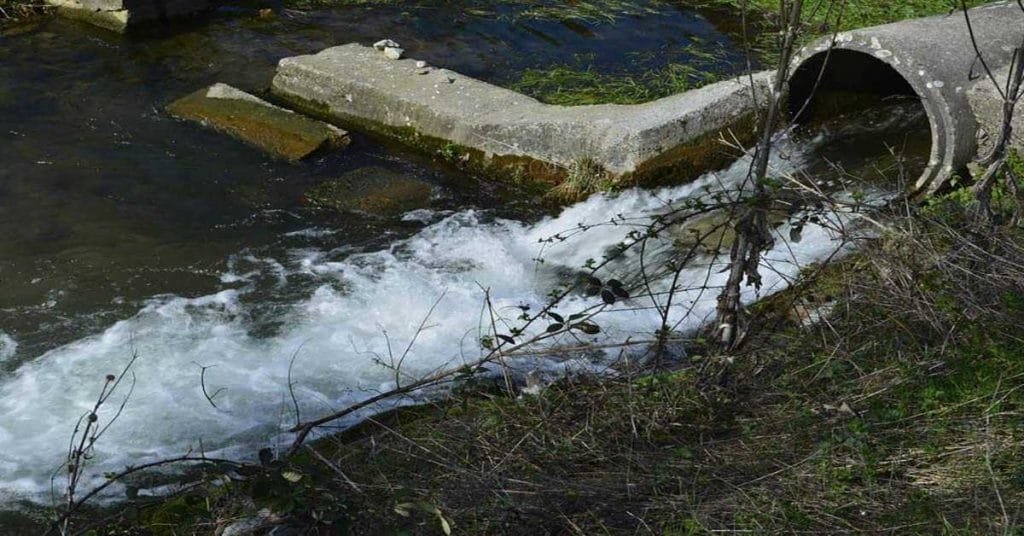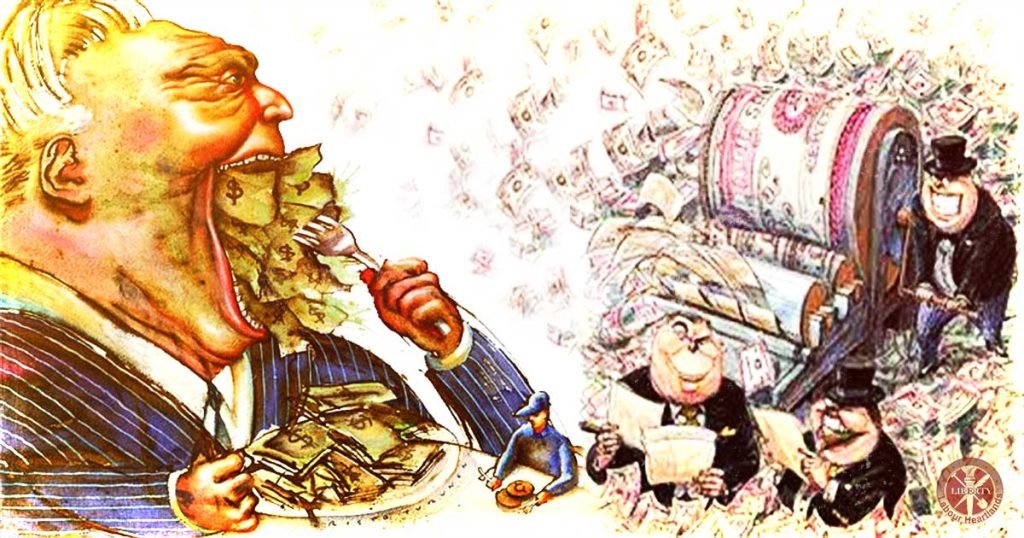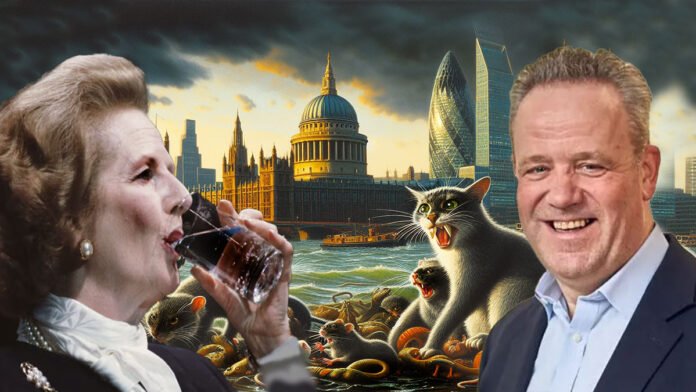Thames Water Bonuses: Fatcats Feast While Sewage Spills Soar
Let’s call it what it is—an absolute scandal. Thames Water, drowning in nearly £16 billion of debt and a 40% surge in pollution incidents, has the audacity to defend handing out £770,000 in bonuses to executives.
Meanwhile, customers are being lined up to foot the bill with a proposed 59% hike in water bills. The firm has said customer bills need to rise or else it will not be able to recover from its financial crisis. However, if the company does collapse, water supplies will not be affected.
The CEO, Chris Weston—a former British Gas executive parachuted into Thames Water in January on a staggering £2.3 million annual pay package—claims these bloated bonuses are essential to “attract talent.” And no, he wasn’t joking.
But what kind of talent, exactly? The kind that presides over sewage dumping, crumbling infrastructure, and spiralling debt? That seems to be the only “talent” on display here—executives skilled at fattening their wallets while rivers run brown, pipes leak, and customers face eye-watering bill hikes. It’s not talent; it’s greed masquerading as necessity, and the public is left to clean up the mess.
A System Designed to Fail

That’s the standard technique of privatisation: defund, make sure things don’t work, people get angry, you hand it over to private capital.
― Noam Chomsky
When Thames Water was privatised in 1989, it had zero debt. Fast-forward to today, and it’s a financial wreck, saddled with billions borrowed to fund shareholder dividends instead of reinvesting in the system. Essential infrastructure like filtration and sewerage upgrades—critical for a growing population—have been neglected in favour of short-term profit.
Privatisation turned water, a public resource, into a cash cow for investors, while the public is left with polluted rivers, leaky pipes, and skyrocketing bills. If water companies had reinvested profits instead of paying out bonuses and dividends, we wouldn’t be in this mess.
Let’s be brutally clear: Water is not a luxury. It is a fundamental human right. This is the perverse logic of privatisation laid bare. Instead of reinvesting profits into critical infrastructure, these corporate vampires have systematically extracted wealth, leaving behind a decaying network of pipes and an environmental catastrophe. Sewage spills aren’t accidents—they’re the inevitable result of prioritising shareholder returns over public welfare.
Blame the Rain? Really?

Weston blames the latest sewage spills on a wet spring and summer. This is laughable. What about the decades of neglect and underinvestment? Rain didn’t saddle the Thames with £16 billion in debt or make it the poster child for environmental destruction. That’s the result of corporate greed and a regulatory system asleep at the wheel.
As in the past, the costs and risks of the coming phases of the industrial economy were to be socialized, with eventual profits privatised …
― Noam Chomsky
Pivotal moment

The proposed 59% bill increase is nothing short of economic violence against working-class families already struggling under the weight of a cost-of-living crisis. Families will be forced to choose between paying inflated water bills or putting food on the table, all to rescue a company that has comprehensively failed in its most basic obligations.
Adding insult to injury, Thames Water is teetering on the brink of insolvency and could run out of money by March 2025. Its creditors, perhaps reluctant to let the taps run dry, have dangled a £3 billion cash lifeline, split into two tranches—£1.5 billion of which might be unlocked in February.
Next week’s court decision on approving this cash injection is pivotal. If granted, it will buy Thames enough time to limp along until October 2025. Without it, the clock ticks ever louder on its financial collapse.
An insider candidly told the BBC that, if not for its mountainous £16 billion debt, Thames might actually be in decent financial shape. This insight is cold comfort when paired with the company’s latest results—a £249.6 million pre-tax profit in just six months, up 20% year on year.
Yet, we all know how the game works: private profits, public losses. The public stands ever closer to footing the bill for the company’s mismanagement while executives and shareholders luxuriate in their gains. Once again, the profits flow upstream while the costs cascade downstream to the rest of us.
Public Ownership: The Only Solution
Union leaders like Gary Carter and Sharon Graham are correct: It’s time to consider bringing Thames Water back into public ownership. Water management should be a public service, not a profit-generating mechanism for corporate elites.
Let’s face it: Thames Water isn’t “too big to fail.” If it collapses, water supplies won’t stop—because they can’t. Water is essential, and its provision would simply shift to public hands. The solution isn’t another bailout or customer-funded rescue but a permanent return to public ownership. Enough is enough.
Water isn’t a commodity for profit—it’s a public resource. The public shouldn’t have to subsidise corporate incompetence while a handful of executives rake in obscene paychecks. Thames Water has become a cautionary tale of what happens when essential services are sold off to the highest bidder.
Speaking on Tuesday, Mr Weston said that the firm had not asked the government or regulators to step in and implement a form of publicly funded administration, called a special administration regime. Excuse the pun but does he think that’s a bonus…
It’s time to end the greed, stop the spills, and put water back where it belongs—in the hands of the people. #Enough #PublicOwnershipNow
Support Independent Journalism Today
Our unwavering dedication is to provide you with unbiased news, diverse perspectives, and insightful opinions. We're on a mission to ensure that those in positions of power are held accountable for their actions, but we can't do it alone. Labour Heartlands is primarily funded by me, Paul Knaggs, and by the generous contributions of readers like you. Your donations keep us going and help us uphold the principles of independent journalism. Join us in our quest for truth, transparency, and accountability – donate today and be a part of our mission!
Like everyone else, we're facing challenges, and we need your help to stay online and continue providing crucial journalism. Every contribution, no matter how small, goes a long way in helping us thrive. By becoming one of our donors, you become a vital part of our mission to uncover the truth and uphold the values of democracy.
While we maintain our independence from political affiliations, we stand united against corruption, injustice, and the erosion of free speech, truth, and democracy. We believe in the power of accurate information in a democracy, and we consider facts non-negotiable.
Your support, no matter the amount, can make a significant impact. Together, we can make a difference and continue our journey toward a more informed and just society.
Thank you for supporting Labour Heartlands









